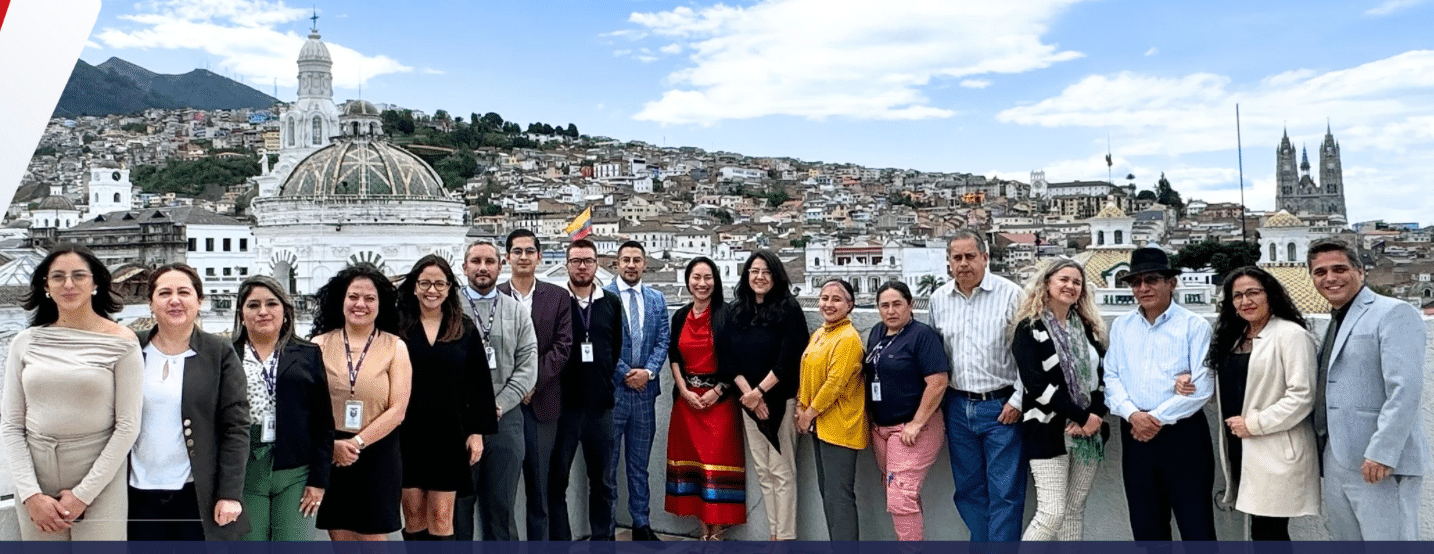Empowering Indigenous Rights and Strengthening Capacity in Ecuador
In commemoration of the International Day of the World’s Indigenous Peoples, observed every 9 August, we reflect on the ongoing struggles and resilience of Indigenous communities. According to the United Nations, globally, 476 million Indigenous peoples across 90 countries speak most of the world’s 7,000 languages and represent 5,000 distinct cultures. Despite comprising less than 5% of the global population, they account for 15% of the world’s poorest and face persistent challenges in protecting their rights and preserving their rich cultural heritage. In Ecuador, the Technical Assistance Partnership-Expert Deployment Mechanism (TAP-EDM) initiative, in collaboration with the Undersecretariat of Government, is making significant strides to strengthen governmental capacity and enhance dialogue between the national government and the Indigenous Peoples and Nationalities of Ecuador. This project is implemented by Alinea International and funded by Global Affairs Canada.
This initiative focused on enhancing the legal framework and upholding the values and principles guiding these crucial dialogues while also refining the technical procedures and mechanisms that support the implementation of Indigenous Peoples’ human rights.
Canadian experts in the Human Rights of Indigenous Peoples, Lea Nicholas-MacKenzie and Sashia Leung, were at the forefront of this initiative. Their collaborative journey in Quito, engaging with the Ecuadorian Ministry of Government, was instrumental in identifying collective priorities. Through a series of meetings with ministry officials, they shared experiences and best practices from both Ecuador and Canada. They also engaged with Indigenous leaders, including Marco Guatemal, Secretario de Gestión y Desarrollo de Pueblos y Nacionalidades, to understand their perspectives and priorities.
The project in Ecuador includes a series of workshops designed not only to enhance the technical and institutional capacity of public servants from the Ministry of Government but also to encourage a culture of continuous learning. These recently delivered workshops, facilitated by Lea, Sashia, and Ecuadorian national expert Ángel Medina, focused on national and international frameworks related to Indigenous Peoples’ human rights, best practices, and the cosmovisions of Indigenous Peoples in Ecuador.
Workshop 1: Understanding Indigenous Peoples’ Human Rights
The first workshop explored the international history and current context of Indigenous Peoples’ human rights. Participants learned about the evolution of these rights, beginning with the Universal Declaration of Human Rights in 1948 and culminating in the United Nations Declaration on the Rights of Indigenous Peoples in 2007. The session highlighted the obligations and responsibilities of states to uphold these rights, emphasizing that Indigenous Peoples have distinct, inherent rights grounded in self-determination.
A key focus was on the contributions of Ambassador José Martinez Cobo from Ecuador, who played a pioneering role at the United Nations in promoting Indigenous rights. His work laid the foundation for ILO-169, ratified by Ecuador in 1998, which remains a cornerstone in protecting and empowering Indigenous Peoples.
Workshop 2: Canada’s Journey of Reconciliation
The second workshop delved into Canada’s journey of reconciliation and the implementation of the United Nations Declaration on the Rights of Indigenous Peoples. Participants were introduced to Canada’s legal frameworks, values, and principles underpinning successful dialogue processes with Indigenous communities. Key topics included Canada’s Permanent Bilateral Mechanisms with First Nations, Inuit, and Métis leaders, and the Principles respecting the Government of Canada’s relationship with Indigenous peoples.
The workshop also highlighted global parallels, noting the similar challenges faced by Indigenous Peoples in Ecuador and Canada, particularly regarding climate change and violence against Indigenous women, girls, and 2SLGBTQQIA people.
Workshop 3: Cosmovision and Intercultural Dialogue
The third workshop, led by Ángel Medina, focused on the cosmovisions and worldviews of Indigenous Peoples in Ecuador. It explored the rich histories and teachings of interconnectedness through Pachamama/Mother Earth and how these have been affected by European colonization. The session highlighted the importance of intercultural dialogue in improving shared understandings and developing participatory processes that lead to better outcomes for all involved.
Participants engaged in open discussions about historical and modern misunderstandings and explored opportunities for future collaboration. They also shared examples of international good governance practices from Colombia, Mexico, and Guatemala, providing valuable insights for Ecuadorian officials.
Closing ceremony and Reflection
The final day of the workshops concluded with personal reflections and identifying key tools and activities to inform a collective roadmap for the future. Participants expressed their commitment to sharing their learnings and disseminating the training materials widely within the government to support the implementation of Indigenous Peoples’ human rights and further develop participatory processes.
The closing ceremony featured remarks from representatives of the Embassy of Canada, the Ministry of Government, the expert facilitators, the presentation of certificates, and gift exchanges.
Lea Nicholas-MacKenzie and Sashia Leung’s extensive experience enhancing institutional capacity for dialogue with Indigenous Peoples has been instrumental in this initiative. Their collaborative efforts with Ecuadorian experts are vital in improving understanding, exchanging best practices, and supporting the project’s overall goals. The workshops marked a significant step in strengthening relationships between the Ecuadorian government and Indigenous Peoples, laying the foundation for continued progress in promoting human rights and intercultural understanding.






